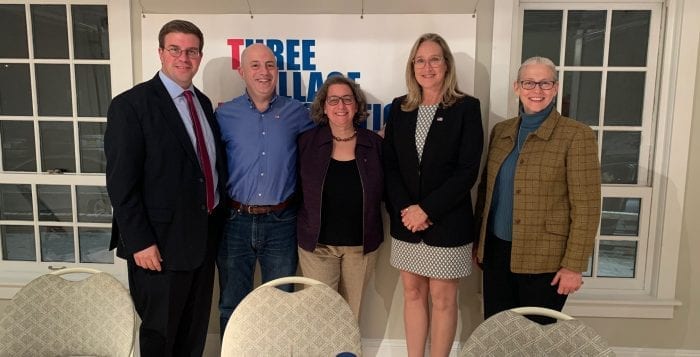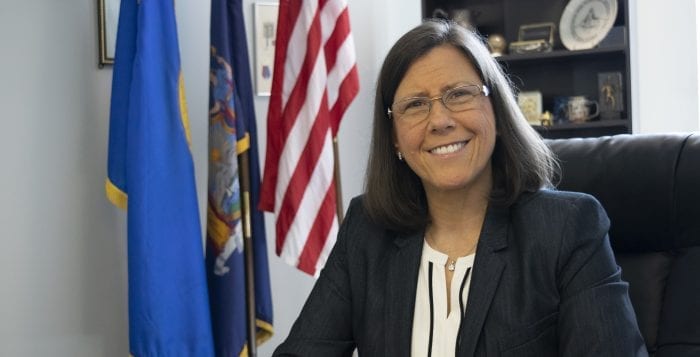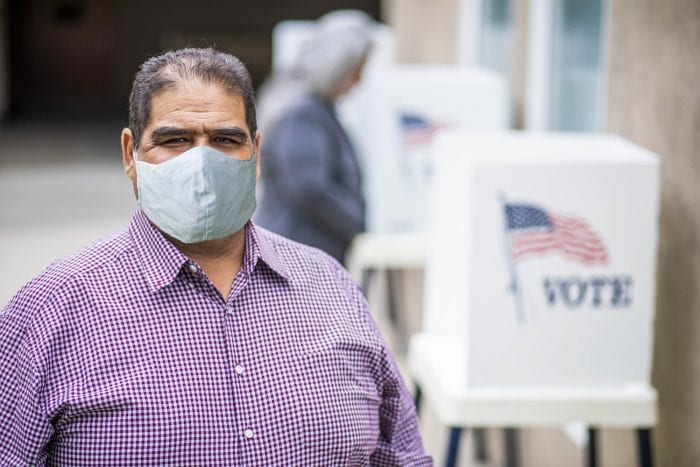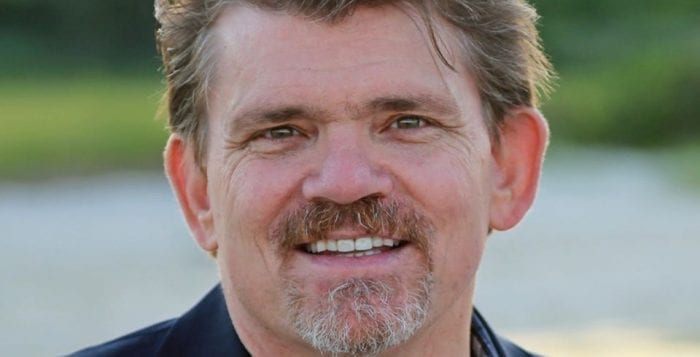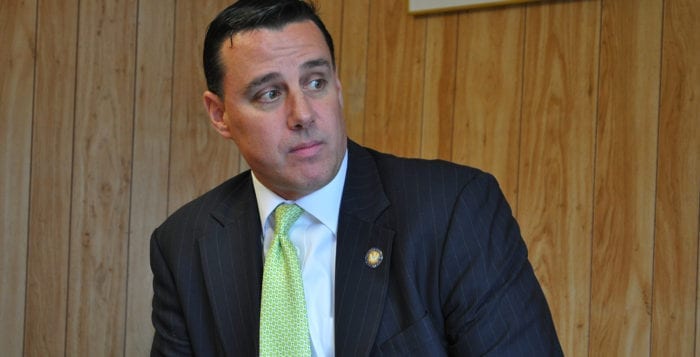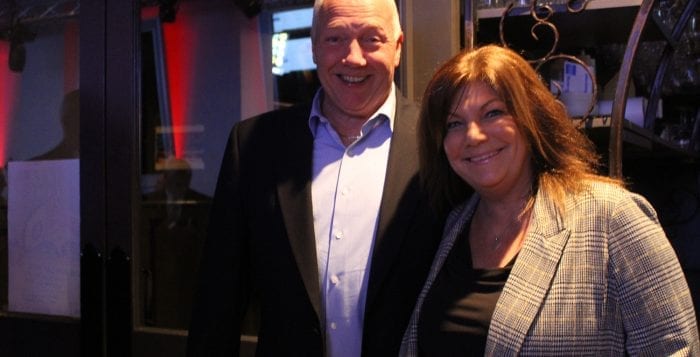By Leah Chiappino
A third-generation Sag Harbor resident and Democrat, Tommy John Schiavoni spent his career as an educator and school board member before being elected to the Southampton town board in 2017. Looking to expand his impact, he is now running to secure the Democratic nomination for New York State Senate District 1, a seat vacated when 44-year Sen. Ken LaValle (R-Port Jefferson) announced in January he would not be seeking reelection.
Last month, the candidate officially established a campaign office in Port Jefferson.
Schiavoni applauded LaValle’s long tenure in public service and pledged to continue his legacy if elected.
“We need to have a critical mass of Long Island senators in the majority so Long Islanders can have more of a say in state government.”
— Tommy John Schiavoni
“His legacy, particularly when it comes to the environment, is going to be felt in the 1st Senate district for years to come,’ he said. “I didn’t agree with him on everything, but he served his community. He was a friend and a supporter of education and I certainly would work with Senator LaValle in the future transition.”
Schiavoni comes from a large family that has owned a plumbing business for three generations. He began working alongside them during summers at age 12, an experience he said taught him strong work ethic, respect for community service and problem-solving skills. Ultimately, he decided the plumbing business was not for him and was fueled by his passion for history and government to go into teaching.
“I was the kid that would sit and watch the conventions in the summertime and route for particular candidates,” he said.
Schiavoni worked his way through college, earning a bachelor’s degree from SUNY Cortland, before securing a position as a social studies teacher at Center Moriches High School, which he held until his retirement in 2018. While teaching, Schiavoni went on to earn his master’s degree at Stony Brook University. He served on Sag Harbor school board from 2014 to 2017, and a legislative liaison to the board as Southampton town board member. These positions sent him to Albany to lobby for funding to East End schools.
“This background for me in school governance is an important part of my commitment to education and why I believe I am now ready to serve as senator,” he said. I went to public schools and I taught in public schools. I believe in public education as the great equalizer of our society.”
The Southampton Town Board member began his political career in 2008, serving on various land-use broads and as a Village of North Haven trustee, an experience that he believes he can take with him in dealing with the politics of Albany.
Aside from local education, Schiavoni said he feels as though environmental issues, specifically regulating tick-borne illnesses, are of great importance.
“New York State really needs to be putting resources into researching why they are happening and the human effects of tick-borne illnesses,” he said. “It affects everyone, it’s affecting our health care, and last year the state still dropped funding to $9 million. That number needs to be a lot bigger.”
When it comes to education at the college level, Schiavoni believes that the SUNY system is providing an “excellent education” to its students and is for expanding the income qualifications for the Excelsior program, which provides free college tuition to families making less than $125,000 a year, if students agree to work in New York for the same amount of time in which they were receiving the scholarship.
“I like the idea of incentivizing people to stay in New York,” he said. “If you get your education in New York and your education is arguably paid for by the taxpayers of New York, staying here for five years is appropriate”
In terms of health care, Schiavoni sees the need to cut costs and supports the recent state Medicare expansion. He is eager to see what the governor has on the table from his recent task force to expand health care further.
The candidate sees affordable housing as a multifaceted problem. In the Town of Southampton, he voted to provide low-cost housing in multiple locations and looks to expand those options. He is in favor of a 5 percent transfer tax to create shared equity programs, where people can split the cost of buying a house with a public fund and can choose to buy full ownership over time. When the house is sold, half of the profit goes to the seller and half will roll over back into the fund.
He is also for expanding and electrifying the Long Island Rail Road, while placing affordable housing near the train stations so people can get from place to place without having to drive. He proposes placing additional siding on the tracks, so more trains can run.
Through all these policies, Schiavoni also stressed fiscal responsibility. As a liaison to the comptroller’s office in Southampton town, the candidate boasted about the AAA Bond rating the town recently earned.
“That kind of fiscal responsibility is necessary in government,” he said. “We need to have big ideas, but we also need to pay for them in a manner that can be sustained in perpetuity.”
He is also in favor of reforming cash bail, citing that it is discriminatory to low-income people, but feels Class D and E felonies should have bail set by a judge.
“We can get people back to court in other ways that are not cash bail,” he said. “When those who cannot afford bail are sitting in jail, the recidivism rate actually rises because they are not able to get ahead, spend time with their families, and it costs the states, county and towns, money.”
Schiavoni said that electing a Democrat from the East End of Long Island is even more vital since the party took the majority in both state Assembly and Senate.
“As much as political parties are important in Albany, regions are important,” he said. “We need to have a critical mass of Long Island senators in the majority so Long Islanders can have more of a say in state government.”
Schiavoni’s path to the nomination is far from linear. Parents for Megan’s Law founder Laura Ahearn, Suffolk County Community College student Skyler Johnson and Valerie Cartright, a Brookhaven town councilwoman are all vying for the nomination. The Suffolk County Republican Party named state Assemblyman Anthony Palumbo (R-New Suffolk) as its front-runner.
“We have some really great qualified candidates,” Schiavoni said. “I think contested elections are good for democracy. This is a big district that spans 68 miles from Belle Terre to Montauk Point. I’m going to get out there and bring my message to the people. As an elected official in a number of different areas, I know that I have a lot to offer.”
The state and local primary elections are taking place June 23, and the winner of the Democratic primary will face Palumbo on election day, Nov. 3.
For more profiles of Democrats running for state SD1, visit TBRnewsmedia.com.

